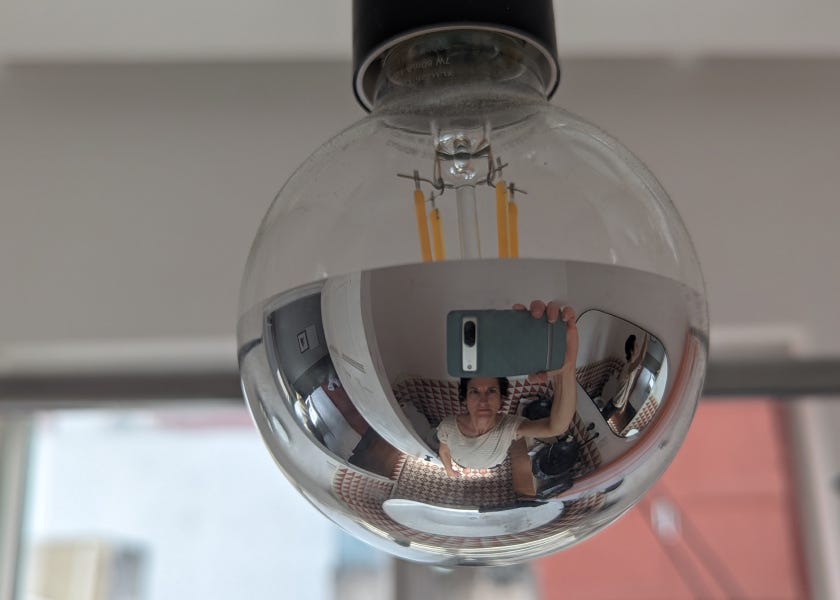How Free are You?
On Freedom, Part 1: The Individual
Freedom is a complex topic with many layers. In this and the following post, I’m not going to delve into political independence or human rights, but rather investigate freedom through the lens of the individual in our day-to-day lives (Part 1) and the culture of our workplaces (Part 2).
I was recently struck when a new client shared in our intake session that she felt she had no agency in any area of her life.
Ouch. What does that feel like? To lack autonomy and choice at work, home, or anywhere else?
Stuck? Trapped? Miserable even?
What can we do to establish more personal power? And what can managers and employers do to create a sense of freedom in the workplace? Let’s tackle the first of these questions today.
Individual Freedom
The lack of freedom is real for many people, but for others, it might be a (changeable) perception that has become a reality. Below are some ways to start moving into a mode of self-empowerment. If you need some support, feel free to reach out!
Get Clear on Needs 🔍
We often feel stuck and powerless when we haven’t taken the time to dig into our feelings, and the needs underlying them. If we don’t know what we want, how will we ever get there?
Marshall Rosenberg’s Nonviolent Communication (NVC) framework is a powerful tool for developing skills in these areas, which to be honest, we’re not that adept at as a society. He suggests identifying feelings and then connecting them with needs to get to the why behind the emotion, and to fully own our experience and its impact on us.
Example
You set aside a weekend day for yourself, yet your partner always cannibalizes that time and schedules family/friend get-togethers that you feel obligated to attend. You go along with the new schedule every time, while stewing inside. What’s underneath this? Sure, you may want to blame your partner and act nastily towards them, but what’s really going on for you?
Spell it out: You’re feeling frustrated, irritated, maybe even resentful. Because you’re an introvert at heart, are experiencing burnout, and need some regular solo time for rest and recuperation. Which means you’re also likely feeling exhaustion, overwhelm, and probably some longing. And you need your protected time to be respected.
How awesome to have that clarity! Most of us lack a rich vocabulary for identifying and expressing our feelings and needs. 📒 Resource: Check out the NVC list in browser or PDF version. Bookmark it, print it, use it!
Make Explicit Requests ❓
It’s true - you won’t know if you don’t ask. And most people aren’t mind-readers. In the teachings of New Ventures West (where I did my integral coaching training) inspired by John R. Searle’s book Speech Acts: An Essay in the Philosophy of Language, requests are considered to be one of six speech acts, and are described as “a speaker asking a listener to take action to fulfill conditions that they specify” and are made “in the present, and invite a future action.”
Back to the Nonviolent Communication playbook, it is advised that requests not only be very specific, but are also phrased in terms of what you want instead of what you don’t want. It seems obvious, but if you’re stuck in the “not this,” that’s what is going to stay in the person’s mind, as opposed to the “what if,” and it’s unlikely they’ll know what to do.
Additionally, requests shouldn’t come across as demands, to prevent the recipient from assuming blame or punishment in the case of non-compliance. They should have a choice in their response.
Example
One of my clients tended to beat around the bush with a lot of unnecessary buildup when asking others for things, which wasn’t very successful. Her audience was likely confused, distracted, or lost, and perceived her as being nervous and unsure.
By getting crisp on her objective and honing her communication skills, she started making simple, clear, and direct requests. And voilà - she gained confidence in asking for things, and her listeners responded accordingly.
Establish Boundaries 🛑
One of the most important daily practices I instilled during my work years ago with Cortney McDermott was to establish a morning routine void of technology. She described the mess of emails, texts, messages, and social media as other people’s problems. Yet as soon as you shift your attention to them, they become your problems.
Starting the day with anxiety and responding to things that did not need to be addressed before the beginning of the workday meant I was completely beholden. Never mind robbing myself of a stress-free, restorative, focused hour+ of my own time!
Where might having a bit of discipline through creating boundaries (for yourself and others) improve your sense of agency? This one is especially important for expecting parents returning to work. It’s critical to establish expectations before you get sucked into a trap.
Example
Before you went out on parental leave, you were OK exchanging work messages after hours. Now with a newborn at home, that’s just not realistic (or for many, desired, or healthy). But you never broached the topic of your new availability with your team, and they continue to ping you at all hours. Your stress mounts.
What’s the solve? While the conversation would have been useful earlier on, it’s better late than never. Schedule a meeting with your team to outline ways of working that include communication rules of engagement and everyone’s protected time. Then adhere to it. Modeling productivity without being always on can go a long way.
Let Go (Sometimes That Means Releasing our Own Shackles) 🪂
We 100% face societal pressure to be the best worker, the best partner, the best parent, the best xyx... But how much do you let these external factors influence your internal state?
Taking it further - might you even be trapped in your own assumptions about what others expect of you? What if you stopped trying to be everything for everyone? What if you had more space to honor yourself?
Example
When I was deep in the consulting throes of leading huge projects in (often) toxic cultures, I felt like it was my responsibility to not only keep everything on track, deliver to the client, and ensure the team felt supported, but also to be the first to respond to everyone’s questions, plan the outings, and frankly, do a lot of babysitting.
Was it stressful? ✅
Did I feel underappreciated? ✅
Did I box myself in? ✅
Could I have operated in a different way, say with more delegation, less tolerance for BS, less perfectionism, and more freedom? ✅
If becoming a single working mom has taught me anything, it’s that stuff HAS to give. I’ll gladly let someone else respond to a Slack message now, assign another person the first draft, or even ignore an innocuous spelling or grammatical error (that’s big for me)!
What are you holding onto too tightly? It may take time to release, but figure out what’s worth letting go of vs. keeping close to the chest.
Feel Freedom in Your Body 🕺
Has there ever been a time when you’ve felt truly free? When you enjoyed the sense of secure independence? When you weren’t held back in any way? When your mind, heart, and body were open and expressive?
For me, many of those moments have included dancing, snowboarding, laughing, floating, running – with control, but without care. (In this case meaning without care for “rules,” expectations, perceptions, shoulds – prescribed by self or others.) Not surprisingly, movement typically accompanies my sense of freedom, because it’s a whole-body experience for me.
How does freedom feel for you?
Close your eyes and revisit – or imagine – a moment of freedom, and sit with it for some time. Where are you noticing that sensation? What loosens up for you? What possibilities open up in this space?
Whenever you find yourself in a moment of restriction, bring yourself back to that sensation of freedom. Familiarize yourself with it, hold it, nurture it. Explore what needs to happen to welcome more of that in your life.
More Food for Thought 🥑
What does freedom mean to you?
How much agency do you have in your life and work?
What have you found helpful in creating a sense of autonomy?
Who do you hang out with that enables you to fully be yourself, with no judgment?
What invisible traps have you created for yourself? How might you dismantle some of them?
What conversations can you have to establish boundaries or release unnecessary responsibility?
🎶 And now I leave you with George Michael’s Freedom! ‘90 video – one of my favorites from the era. I learned at the Thierry Mugler (iconic fashion designer and a creative collaborator of George Michael) Couturissime exhibit at the Brooklyn Museum that George Michael didn’t appear in this video as a sort of FU to MTV. Instead, he featured famous supermodels. At the time he was encouraged to be front and center, but was miserable in the limelight, and also closeting a key part of his identity. The lyrics and video address the nuances of this struggle.
But today the way I play the game has got to change, oh yeah
Now I'm gonna get myself happy
Group Coaching for Parental Leave
One more thing… I’m collaborating with fellow coach Lee Boole to develop a (virtual) group program to prepare working parents for parental leave. We have so much rich content, tools, and resources to share, and are thrilled about implementing coaching in a small community environment.
If you or someone you know (friend, colleague, direct report) is expecting a child and might be interested in learning more when we launch, let us know here! It’s going to be awesome.










